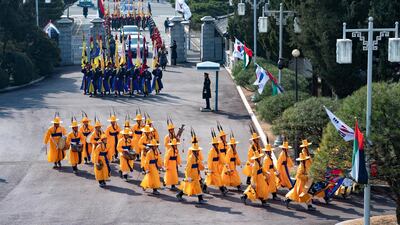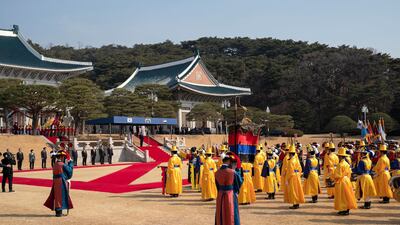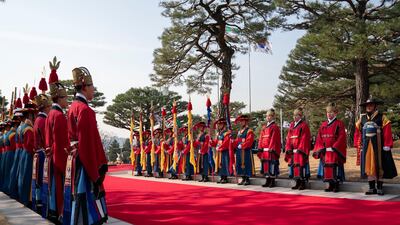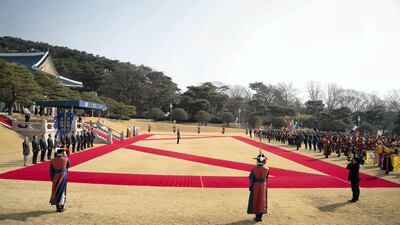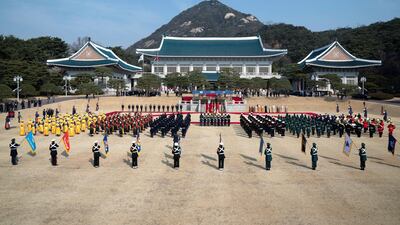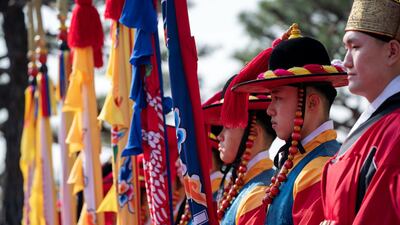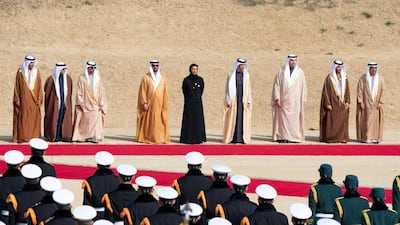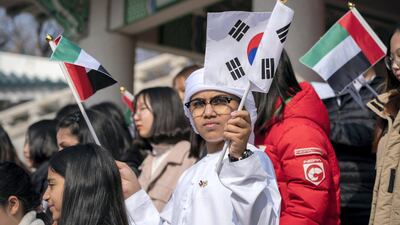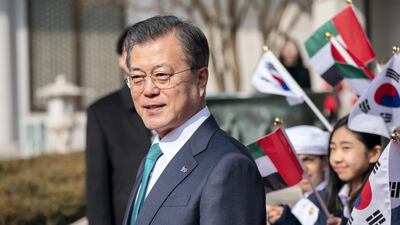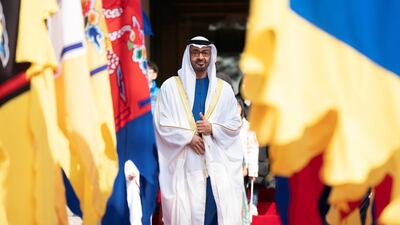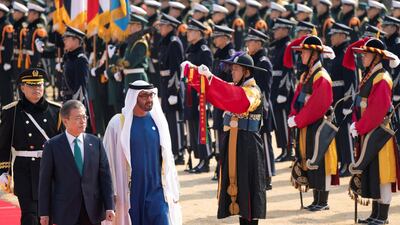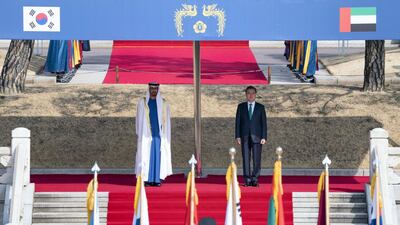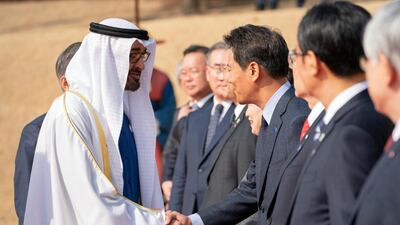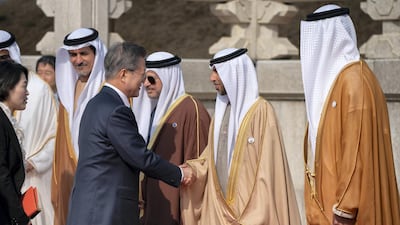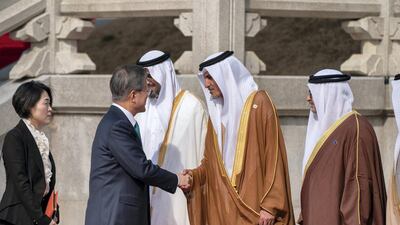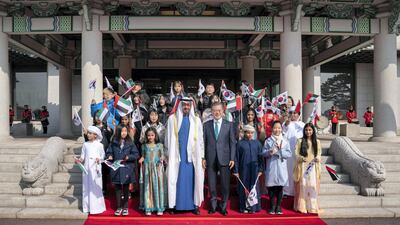Sheikh Mohamed bin Zayed concluded his official visit to South Korea on Wednesday after a meeting with the country’s President Moon Jae-in.
The Crown Prince of Abu Dhabi and Deputy Supreme Commander of the Armed Forces was welcomed to the Blue House, the official residence of the head of state, by Mr Moon.
The welcoming ceremony was a colourful affair, with members of the Guard of Honour escorting Sheikh Mohamed’s convoy on to the premises and lining a red carpet, during the official reception.
The national anthems for the UAE and South Korea were played as South Korean and Emirati students, wearing national dress, waved their country's flags.
Sheikh Mohamed and Mr Moon then held a meeting where they agreed on 18 points of co-operation between their respective countries.
"I was pleased to meet with President Moon Jae-in. We held constructive talks about our special strategic relations and our mutual desire to expand and diversify them," Sheikh Mohamed said in a tweet.
"We would like our relationship to become even stronger and be of benefit to both of our countries."
Among the topics discussed, the two leaders agreed to strengthen the special strategic partnership that was established in March last year, namely in the fields of economy, defence, science, culture and education.
Sheikh Mohamed and Mr Moon witnessed the signing of a number of deals between the two countries, chiefly a Dh4.4bn agreement between Abu Dhabi National Oil Company and SK Engineering to build the world's largest single-site underground crude oil storage facility in the UAE's northern emirate of Fujairah.
The contract awarded to the South Korean firm is for the construction of three large underground caverns, with a capacity of 14 million barrels each by 2022, allowing Adnoc increased flexibility to export via the Arabian Sea, bypassing the congested Strait of Hormuz.
Other agreements signed on Wednesday included political and economic deals as well as those covering tourism, agriculture, the environment, modern technology and energy, Sheikh Mohammed said.
Plans to boost dialogue between the foreign ministers, continue to hold regular defence meetings and establish a high-level consultation on nuclear co-operation were agreed upon.
Sheikh Mohamed and Mr Moon said the work on Barakah Nuclear Power Plant was a valuable foundation for developing co-operation between both countries and agreed to continue working closely to finalise the project that is due to be completed by the end of this year at the earliest. They also agreed to expand their nuclear partnership and seek opportunities for potential co-operation in other countries.
Non-oil trade between the UAE and South Korea amounted to about $8.5 billion last year; the two leaders agreed to increase that figure by looking into investment opportunities in new and renewable energy; smart city infrastructure; semiconductors; 5G telecoms; agriculture; healthcare; information communications technology; space; public safety; and artificial intelligence. They also spoke of potential aviation opportunities, reported state news agency Wam.
Beyond political and economic trade, Sheikh Mohamed and Mr Moon discussed ways to increase inter-cultural understanding and boost tourism between both countries.
Sheikh Mohamed arrived in South Korea for his first official visit since 2014 on Tuesday. He began his trip with a visit to the Memorial Tower in Seoul National Cemetery before moving on to the Samsung Device Solutions Research Centre in Hwaseong, a city in a province south of the capital.
There he toured one of the company’s most advanced facilities and met the vice chairman of Samsung Electronics, Lee Jae-yong.
Sheikh Mohamed rounded off his first day in the country by visiting the Korean National Assembly and meeting its leaders.
The UAE and South Korea have ties stretching back almost 40 years, but have enjoyed particularly close relations since 2009, when Seoul's part-state-owned energy company won a $25 billion (Dh92bn) contract to build the first nuclear power plant in the Middle East, in Al Dhafra.


